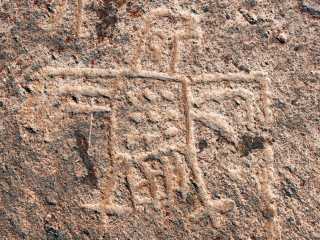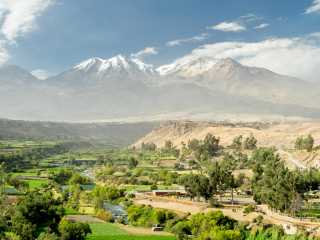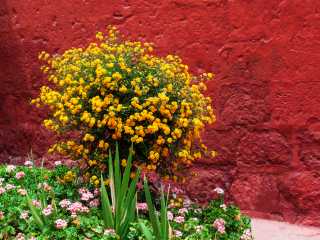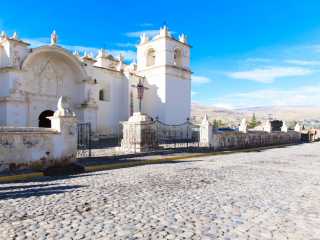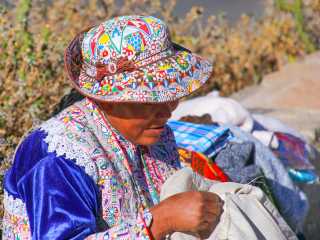TEFL Course Arequipa
Arequipa is a magical Spanish colonial city sitting in a rustic valley in Southern Peru. The city is surrounded by three 19,000 feet (6,000 meters) tall mountains and volcanoes, including the picturesque Misti Volcano. Arequipa was designated a UNESCO World Heritage Site in 2000 due to its amazing architecture and ability to maintain its 500 year heritage. Known as the: "White City", Arequipa was founded in the early 1500's by the Spanish conquistadors. The nickname "the White City", is believed to have been derived from the bright white volcanic rock which was used to build the incredibly beautiful downtown area over a period of 400 years.
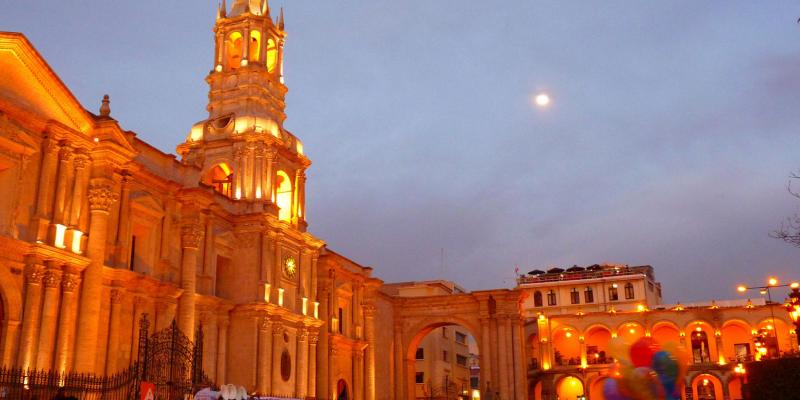
Arequipa is also strategically located in Peru. From here, you can easily travel to Lake Titicaca, Colca Canyon, Cusco's Machu Pichu, fly to the Amazon basin, climb towering volcanoes, raft on the Chili and Majes rivers, spend a day on the Pacific coast, see the Nazca lines, or travel across the border to explore Bolivia and Northern Chile. Local villages offer visitors a chance to experience native South American customs as well. You are as likely to hear Quechua (the language of the Inca Empire) being spoken as Spanish in many of the surrounding "pueblos". The influence of the Inca Empire and the native customs, traditions, and clothing are still seen wherever you go in the city and throughout the province.
Our TEFL center is located in a residential neighborhood across from a beautiful city park near the Chili River. We have 13 classrooms for both English language training and TEFL preparation. Furthermore, we offer a computer lab with WiFi access, free coffee and tea, and a patio to enjoy the daily sunshine of the Andeas. Our front office staff is ready and willing to help you with any questions you may have.
The cost of living in Arequipa is low compared to more developed countries and large cities. For those wanting to explore traditional Peru, a private room/private bath with a Peruvian family can be found for as little as $150 per month. Many trainees and teachers share large apartments near our center for very reasonable rates. Most local restaurants offer lunch specials and pricing for meals consisting of a main course, salad, dessert and drink for as little as $2. Taxis cost about $1.50 all over the center of the city and bus transportation is approximately 40 cents. Certified TEFL teachers seeking immediate employment in Peru will find many opportunities in private language centers and universities throughout the country. Pay may be a bit lower than in other countries, however, the cost of living is, too!
